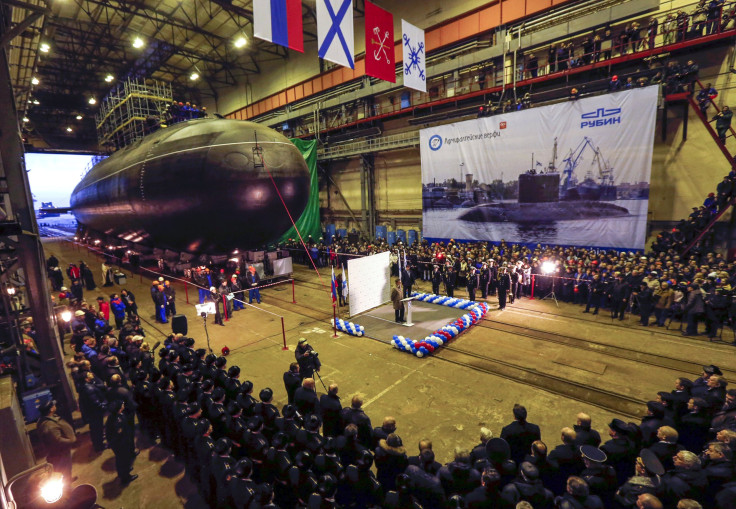Russian Black Sea Submarine Presence Revived As It Looks To Strengthen Military Position Near Crimea

Russian will send new diesel-electric submarines to its Black Sea port of Novorossiysk in 2016 as it looks to reinforce its naval presence in the region, reported the Russian news agency Tass. The naval base, which lies about 60 miles from the annexed Crimean peninsula, will alarm NATO and European Union (EU) leaders, who will see the move as an attempt to further legitimize Russia’s claimed ownership of the former Ukrainian territory and further evidence of the Kremlin reverting to a military stance reminiscent of the Cold-War.
"The construction of a series of six Project 636 diesel-electric submarines for the Black Sea Fleet is under constant control of the Navy’s Main Command,” Russia’s Navy Commander-in-Chief, Admiral Viktor Chirkov, said Monday. “Until the end of 2015, the Navy will receive the submarine Krasnodar. Two more Project 636 submarines -- the Kolpino and Veliky Novgorod -- are in the active phase of their construction at the Admiralty Shipyards, and we plan to accept them for operation in the Navy until the end of 2016.”
Since its annexation of Crimea in March 2014 and its continued involvement in the east Ukraine war over the last 16 months, Russia has increased its military presence across the world, including taking part in naval exercises in the Pacific, Arctic, Mediterranean and Sea of Japan.
However, Moscow's annexation of Crimea has been one of the most alarming episodes for its European neighbors since the former Soviet state began its renewed military campaign last year. After soldiers who were later identified as being Russian began patrolling the streets, a vote was held to decide whether people living in the Black Sea peninsula wanted to remain part of Ukraine or Russia. More than 80 percent of the population chose joining the Russia Federation.
Once EU-led economic sanctions against Russia began, the Kremlin commenced a sustained campaign that saw hundreds of flights and ships enter Europe's international airspace and waters, driving a wedge between East and West, and alarming countries bordering Russia.
To that end, Russia has already received two submarines in Novorossiysk since 2014. The arrival of the remaining submarines would give them a direct route into the Black Sea, rather than having to pass through the Sea of Azov in the north.
"With the sequential arrival of these submarines in Novorossiysk in 2015-2016, we can state about the revival of the Black Sea Fleet’s submarine forces," said Chirkov.
© Copyright IBTimes 2025. All rights reserved.






















